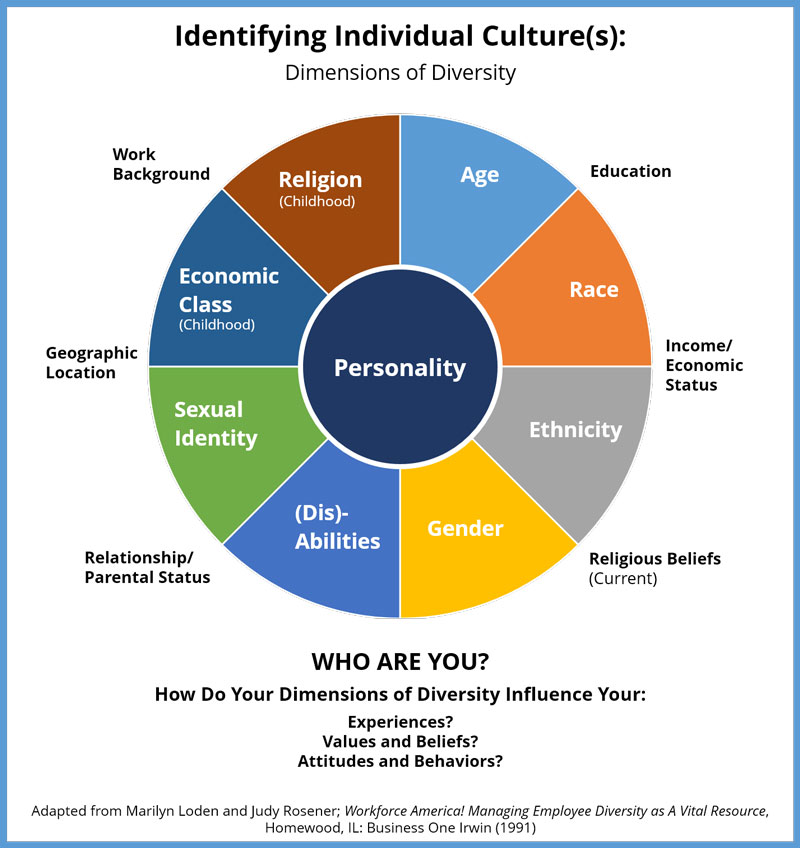This page is a collection of texts, videos, and interactive projects about cultural humility and other related topics. These are information we are learning throughout the semester and we are sharing it so you can learn with us!
Learn about Cultural Humility
The Importance of Cultural Humility
Cultural Competence and Cultural Humility in Cross-Cultural Exchange
The concept of cultural humility was developed to help us bridge that cultural gap.
Cultural humility is a process of self-evaluation that focuses on how our culture influences our perceptions of other communities and the impact that has on our ability to participate in successful cultural exchanges. Cultural humility includes:
– Evaluating and acknowledging the limitations of our own cultural perspectives
– Recognizing and changing power imbalances
– Prioritizing mutual respect
– Accepting that developing cultural understanding is a lifelong learning process
Culture: What Is It, and How Does It Influence Us?
The culture wheel (below) is one of the best displays of culture I have found.
I ask my students and workshop participants to designate four of the cultures inside or outside of the wheel that they most identify with. To aid in this process, I ask them to answer the following questions:
- What do you most identify with?
- What do you spend the most time thinking about?
- What do you spend the most time in or doing?
- What do you value or think is most important?

Learn about Other Cultural-Related Projects
From CMU ETC (most recent)
Blindspot (2021)
“Blindspot is an Entertainment Technology Center (ETC) project in partnership with the Data-Driven Diversity Lab (D3) at Carnegie Mellon University. D3 uses data and insights from psychology and behavioral economics to understand how different groups experience student success, thriving, and a sense of belonging at Carnegie Mellon University. Using D3’s insights, our team is creating an interactive transformational experience that aims to raise awareness and inspire action to counteract the negative impact of stereotypes and microaggressions that emerge in everyday contexts.” — Blindspot’s project description
Piggy Banksy Live! – paradigm (2019)
“Graduate students at the Entertainment Technology Center from Carnegie Mellon University designed a digital collaborative art experience that encourages players to find their inner provocateur to create the social change they want to see in the world.
In this experience, players are asked to reflect on why they came to Games For Change, what social issues they care about discussing, and how to start their own creative revolution through the power of art.” — paradigm’s project description
KALEIDOSCOPE (2019)
“Kaleidoscope has created an interactive experience for the Carnegie Mellon University’s Askwith Kenner Global Languages and Cultures room located in the Tepper Quadrangle. This interactive experience consists of two parts. In this first part, guests are prompted to make assumptions about the person they see inside the experience (“OG Pool”) by answering a series of questions about the OG Pool such as “What do you think my highest level of education is?”. Guests are then presented with the real answers of the OG Pool and have a chance to compare their assumed answers to these real answers. At the end of the experience, there is a takeaway message where the guests are encouraged to have conversations with people in the real world to seek truth as opposed to making and relying on assumptions built on cultural bias.” — Kaleidoscope’s project description
PRISM (2018)
“Prism is a technological solution to one of society’s most important problems today—getting neurotypical people to empathize with those on the autism spectrum. Working initially with 3rd and 4th graders at the Beech Bottom Primary School in in Brooke County, West Virginia, the team behind Prism is creating the tools to help a generation of children grow up with increased awareness and understanding for their autistic peers. If successful, the technology that powers Prism can be expanded to reach additional age groups, parents of autistic children, educators, and beyond.” — Prism’s project description
Mind Field – Mocking Birds (2017)
“Mind Field is an interactive experience dealing with racism. Collaborating with students and administrators from the main campus of Carnegie Mellon University, we created a tool that raises awareness and evokes discussion among students on the in-explicit forms of racism. We will generate information from real life stories and on campus incidents as reference and create a web-based experience, which allows the player to see the world from different points of view.” — Mocking Birds’ project description
Decisions That Matter – Patronus (2015)
“Patronus is building a product with the goal of creating an experience that educates and inspires people towards primary intervention against sexual assault on college campuses. The product will take the form of an interactive graphic novel, guiding the guest as a bystander through varying instances of harassment that can lead to an incident of sexual assault. Our product should leave the guest educated on the situations in which sexual assault can occur as well as feeling empowered at the difference they can make with their actions.” –Patronus’s project description
INJUSTICE – Kalpana (2015)
“Injustice is a three to five minute interactive virtual reality (VR) experience themed around racially motivated police brutality. In Injustice , guests witness an act of racial discrimination happening in front of them, forcing them to make moral and ethical decisions on the spot. The guest comes face to face with the characters of the story, filmed with live action, and interacts in the space with them directly using gaze interaction and voice recognition.
Injustice is an experience aimed at exploring the emotional impact of VR space versus traditional film.” — Kalpana ‘s project description
From Outside Sources
Games for Change
“Founded in 2004, Games for Change is a 501(c)3 nonprofit that empowers game creators and social innovators to drive real-world impact through games and immersive media. We convene industry experts through our annual Games for Change Festival, inspire youth to explore civic issues and STEAM skills through our Student Challenge, and showcase leading impact-focused games and immersive experiences through live Arcades for the public. In addition, G4C incubates and amplifies new projects through thought-leadership, cross-sector consulting, executive production and direct funding through the G4C Accelerator.” — Games for Change Who We Are
Project Implicit
“We are a non-profit organization and international, collaborative network of researchers investigating implicit social cognition, or thoughts and feelings that are largely outside of conscious awareness and control. Project Implicit is the product of a team of scientists whose research produced new ways of understanding attitudes, stereotypes, and other hidden biases that influence perception, judgment, and action.” — Project Implicit’s homepage
Google Arts & Culture
Google Arts & Culture is a non-profit initiative. We work with cultural institutions and artists around the world. Together, our mission is to preserve and bring the world’s art and culture online so it’s accessible to anyone, anywhere.
Worlds Apart #OpenYourWorld – Heineken
Strangers – Airbnb
“When Airbnb was born back in 2007, people thought the idea sounded crazy. ‘Strangers will never stay in each other’s homes’, they said. But in the last 14 years, there have been over 1 billion guest arrivals on Airbnb. And every day, Airbnb Hosts open their doors to over half a million strangers. As it turns out, strangers aren’t really that strange” — Airbnb Youtube Video Description
